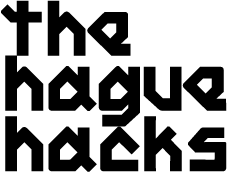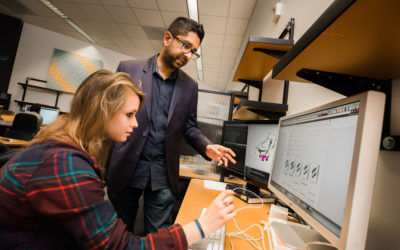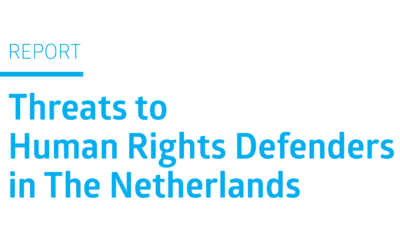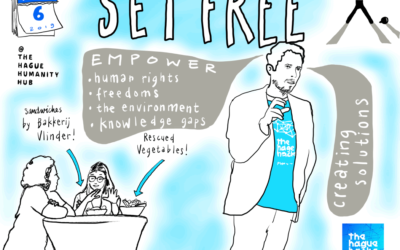Nextview Event: From personal stories to concept-prototype
Early Warning System Concept-prototype
“I’ve never done it before. So I think I can do it.”
– Pippi Longstocking
By Nina Nout
We held our Nextview Event on June 19 surrounded by inspirational quotes in the beautiful workshop space of the Nextview Design Centre on the High Tech Campus in Eindhoven. We had the opportunity to collaborate with Nextview on this ideation session, an innovative company which specializes in combining design thinking and technology. With their expertise and know-how for the day, we designed the first concept-design of our Early Warning System prototype. Needless to say, it was a very productive day!
We had the pleasure of welcoming people from a variety of fields, from human rights defenders, tech experts, designers, and interested students. Most of our team also attended the event, so we could collaborate with others to create a concept design for our Early Warning System technology.
We started the day with general information on the structure of the event and information about our projects. We also invited human rights defenders to speak about their lives and the importance of ethical technology to support human rights activism. After that, we split up into two groups. We dedicated the rest of the morning to the exploration phase, where we discussed the problem, context and the needs of human rights defenders.
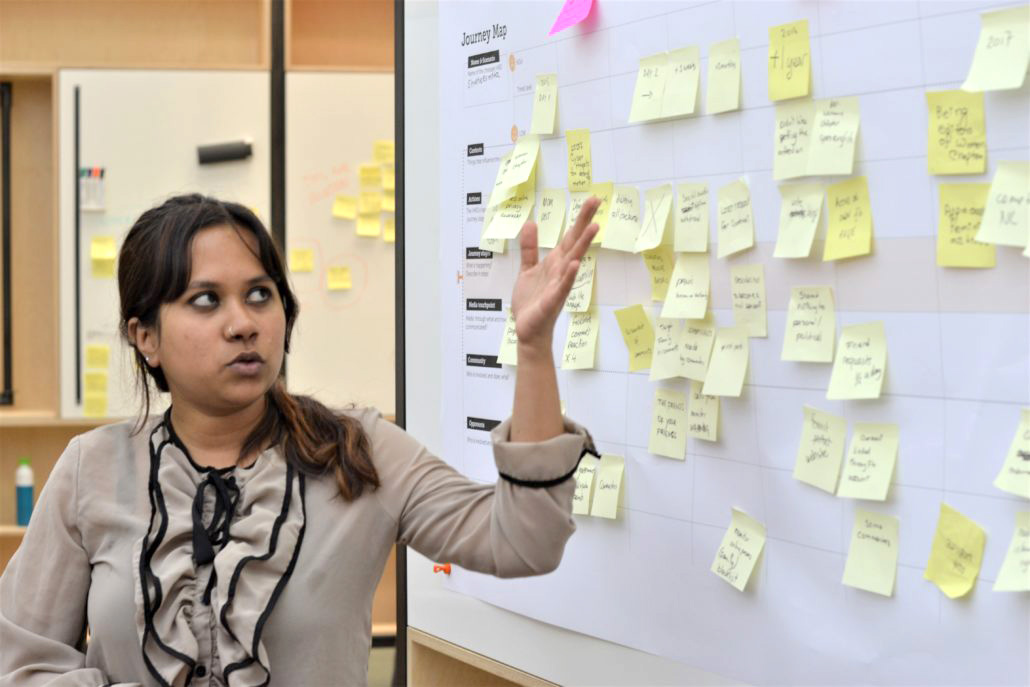
Shucheesmita draws attention to important moments in her activist journey using a Journey Map.
We created journey maps based on the lived experiences of the human rights defenders present at the event. In one group, we followed the journey of a Bangladeshi feminist activist who became the target of human rights violations. We established the key points in her story and discussed how online harassment against her began and escalated.
In the other group, the journey map detailed the story of a man who shared his story from Islam to atheism online. The subsequent storm of online harassment caused him to quit social media for a number of years. After which, he began to build connections and communicate again on social media, this time more aware of the risks of his activism online and offline.
Even though both journey maps had different stories, we found some distinct similarities between the two stories. The journey maps showed that both human rights defender did not intentionally set out to become activists. Their first activity did not come from a political or activist point, but from personal experience and opinions. This meant that they became aware of the importance of safety and privacy online only at a later stage in their work. The lack of a trustworthy source of information about online safety and what actions to take when they received threats was a common theme in both stories.
Despite the similarities, there were also clear differences. An important point that became clearer during the conversations with human rights defenders was that every human rights defender had different experiences and a threshold for what they considered a “serious” threat.
The nuances that came to light during this day proved the importance of trans-disciplinary design sessions. Offering reliable tech solutions takes more than one hackathon. We need to think, discuss and adapt our projects constantly to bring the separate worlds of human rights and technology together throughout the problem-solving process. Another quote that we were reminded of at Nextview is the old saying: “Rome wasn’t built in a day.” This is also why we need the infrastructure and resources to follow-up with the innovative ideas that come out of ideation sessions to transform them into concrete technologies.
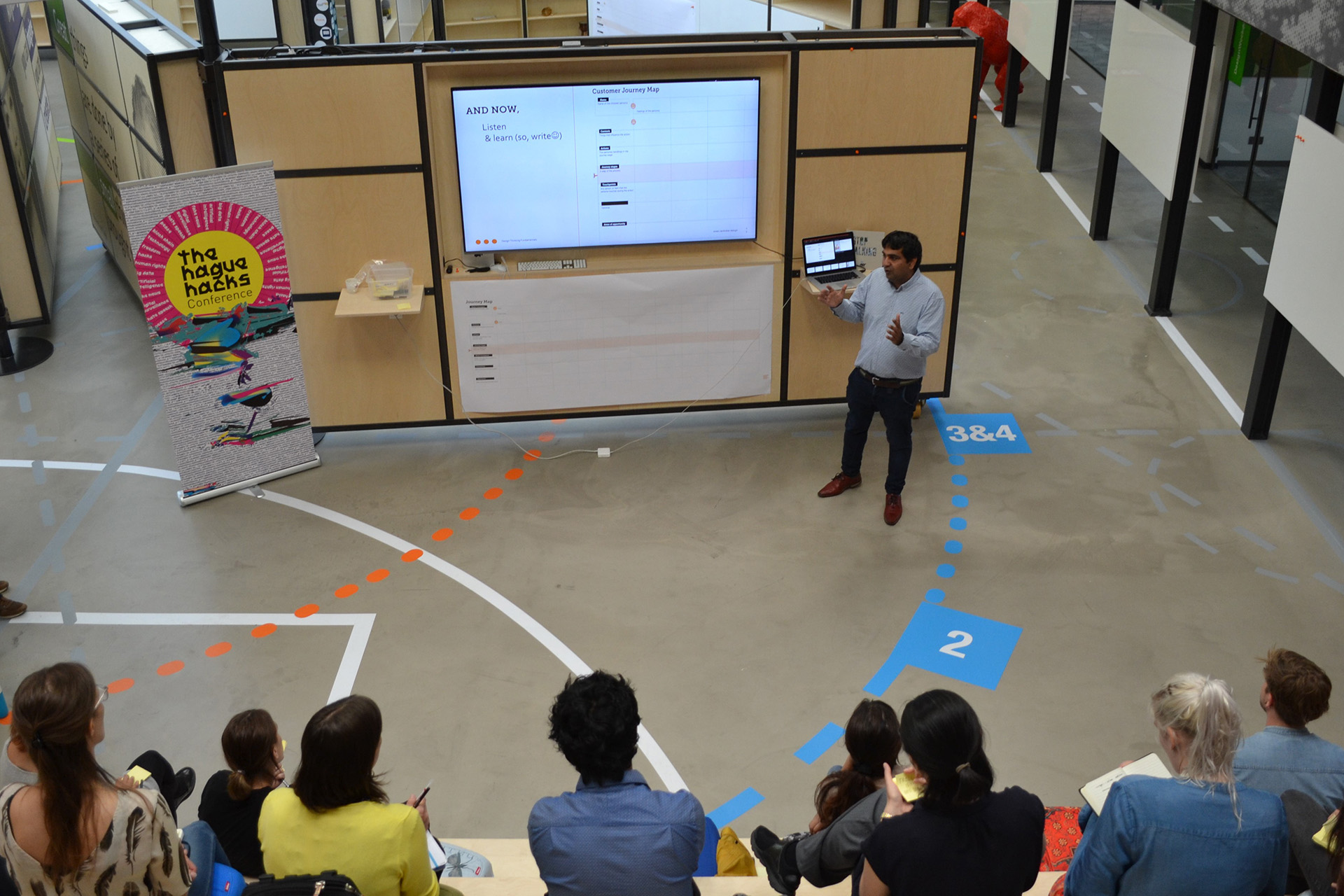
Waqaas explains his unintentional journey to activism.
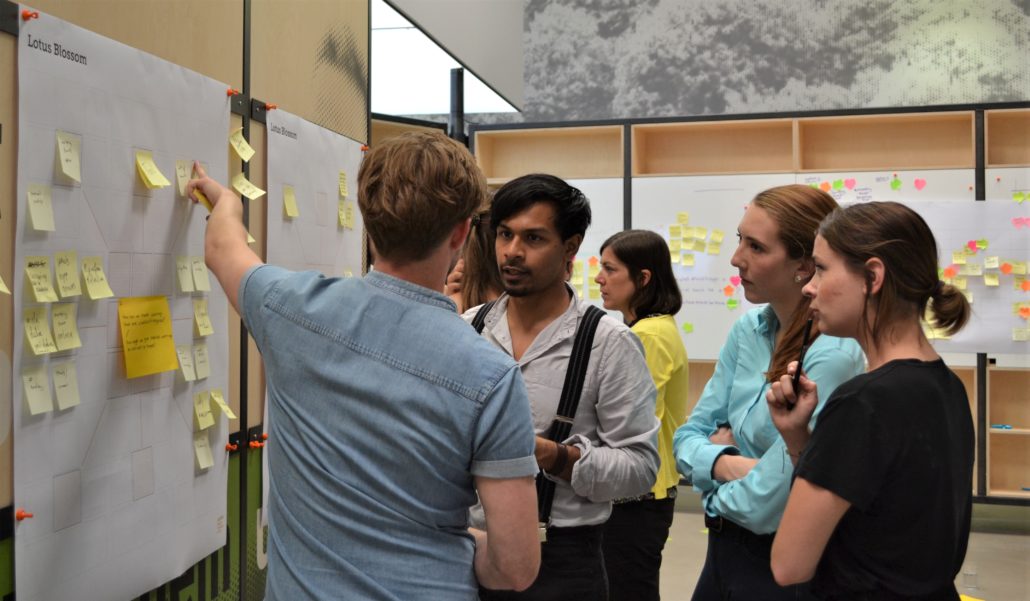
One of the groups discuss the characteristics of their Early Warning System technology concept-prototype.
Based on the journey maps, we began to design our tech solutions. Both groups designed variations of the Early Warning System technology. This technology takes into account the individual stories and viewpoints of human rights defenders but also monitors online trends and movements. We have since been busy with the development of these design ideas and have come up with a concept-prototype of the Early Warning System technology. Currently, we are working towards being able to make our first prototype.
Even though it’s summer we have not been sitting still on our other activities either. The Hague Hacks co-organized an informing session for the World Legal Summit on August 1st with The Humanity of Things and The Embassy of Canada to the Kingdom of the Netherlands. We were also invited to speak and educate a dynamic and talented group of youth from CISV about safe practices for activists on social media, as well as guide them through an ideation session to brainstorm new technologies for hate speech online. Several interesting ideas emerged, and the youth were excited about the possibility of seeing these ideas come to life!
We have also begun preparations for our third The Hague Hacks Festival this December. We’re very excited about this, and will update you on the latest news on our blog and our social media channels!
If you are interested in The Hague Hacks, or if you would like to learn more, collaborate, volunteer, or just want to drop a note, we’re happy to hear from you. Send us an email at haguehacks@thehaguepeace.org.
** Update 2021**
Having been through many design iterations, the Early Warning System is currently under development. October 2021; the results of continued research and feedback have culminated in a prototype UX design undergoing evaluation.
